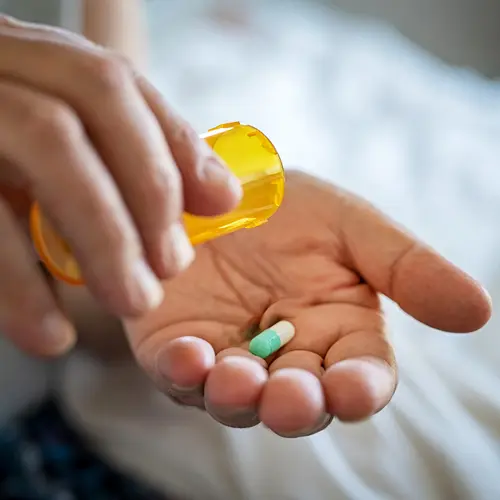Has your blood pressure been creeping up? If so, you may be at decision time: Do you need medicine right now or can you get those numbers down with healthier habits?
There isn't always a clear answer. A lot depends on how high your blood pressure is and your general health. Your age also plays a role. Learn how you and your doctor can figure out when lifestyle changes are enough and when they need to pull out the prescription pad.
Understand the Numbers
The first step is to look at your numbers. Blood pressure is always shown with a top and bottom number -- like 130/90.
The top number tells you the pressure when your heart squeezes. The bottom number lets you know when your heart relaxes.
Normal blood pressure is less than 120 and less than 80. If one or both of those numbers is higher, there's too much pressure in your arteries. It's like a tire pumped with too much air. Over time, the extra pressure can cause damage -- and raise your chances of heart disease, stroke, and kidney disease.
So on the blood pressure range, where do your numbers fall?
120 to 129/less than 80 (Elevated): You probably don't need medication.
Your blood pressure is higher than you want, but it's not full-on high blood pressure. Unless you also have another health condition -- like kidney disease or heart problems -- your doctor will likely say you don't need drugs for now.
But don't ignore it. You're on the path to high blood pressure, so make some changes to your lifestyle. Cut down on salt and alcohol, get more exercise, and drop pounds if you're overweight.
130/80 to 139/89 (stage 1 hypertension): You might need medication.
These numbers qualify as high blood pressure and you need to take action. But your doctor will probably suggest that you try out lifestyle changes first before adding drugs -- unless you have other health problems.
One thing to keep in mind: Guidelines are different for older people. If you're 60 or older, the American College of Physicians and the American Academy of Family Physicians recommend you start treatment if your top blood pressure number is 130 or higher.
140/90 or higher (stage 2 hypertension): You probably need medication.
At this level, your doctor is likely to prescribe medicine now to get your blood pressure under control. At the same time, you'll also need to make lifestyle changes.
If you ever have blood pressure that's 180/120 or above, it's an emergency. You need medical help right away to get it under control.
Other Questions to Ask
While your numbers are important, they don't tell the whole story. Other things affect the decision to take meds. Some issues to think about:
Do you definitely have high blood pressure? One high reading isn't enough to know. Your doctor will want to check your blood pressure a few more times -- over weeks or months -- to make sure.
Have you checked your blood pressure at home, or only in the doctor's office? If you don't already have one, it's a good idea to get a home blood pressure monitor. Lots of people have high blood pressure in the doctor's office because they're nervous. If your home readings are normal, your doctor may decide you don't really need treatment.
Have you already tried lifestyle changes -- and your blood pressure is still high? If your blood pressure is still too high after 3 months of healthier habits, your doctor is likely to suggest medicine.
Do you also have other health conditions? High blood pressure raises your chances of getting a heart attack or stroke. If you have other medical problems -- like high cholesterol, diabetes, or heart disease -- your doctor will be quicker to recommend medication.
Do you have other reasons your chances of heart attacks or strokes are higher? For example, are you African-American? Are you a man? Do you have a family history of heart attacks or strokes at young ages? Are you overweight? Do you smoke? Each one of these raises your odds of heart disease. The more of these situations you have, the more likely your doctor will prescribe high blood pressure medicine.
How old are you? While your odds of heart disease go up as you age, the risks of side effects from blood pressure medications -- like dizziness and falls -- can also get more serious. You need to weigh the benefits and risks. If you're age 80 or older and you have high blood pressure, your doctor may hold off on medication to protect you from side effects.
What do you want to do? Your opinion matters. Some people choose to take medicine because they're concerned about the risk of heart attacks and stroke. Others don't like the idea of going on daily medication or worry about the side effects. Talk to your doctor about the pros and cons, and be open about how you feel.
Keep Track of Your Blood Pressure
Remember, high blood pressure has no symptoms. So the only way to know if it's high -- or getting higher -- is to check it regularly.
If you and your doctor decide you need medicine, it's not a defeat. Lots of people get high blood pressure eventually. And it's not an excuse to give up on healthy habits either. You'll get the most benefit from your blood pressure drugs if you combine regular exercise, a good diet, and a healthy weight.

